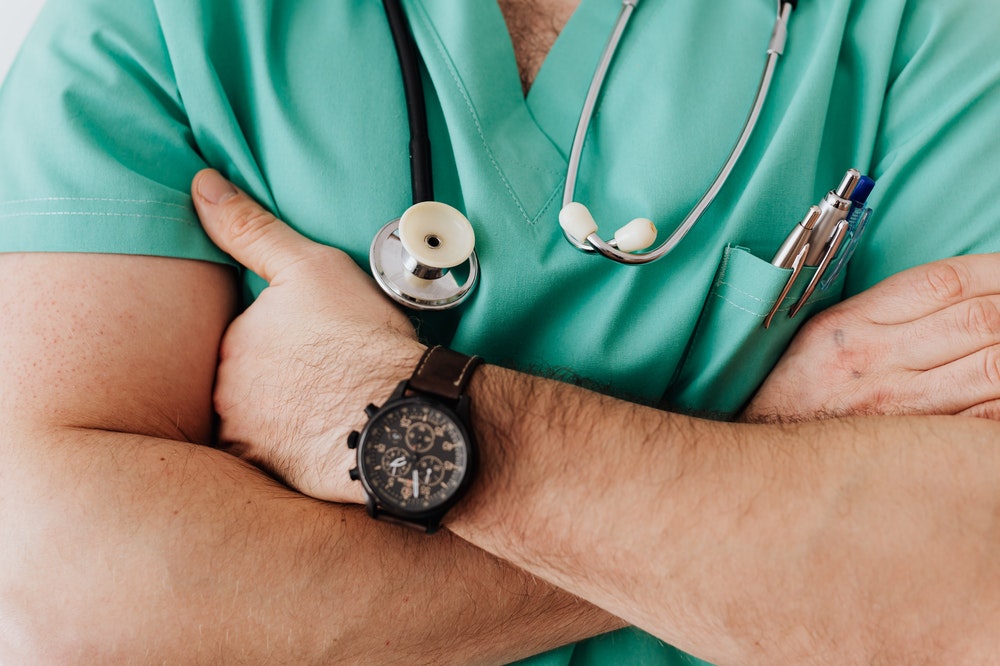No matter what actions you intend to take after you’ve been involved in an accident that leads to a personal injury, your health should come first. That means any injuries suffered during your car crash, slip and fall, dog bite, or other negligent accident case need to be addressed quickly and thoroughly.
But if you’ve never been involved in an accident or suffered any type of severe injury before, you may not fully understand just how important it is to seek out the care you need. Developing and sticking to the right treatment plan is vitally important for both your health and for building a legal case against the party at fault for your injury. And the right treatment plan to achieve both of those comes first and foremost from understanding exactly how to work with your doctor during this trying time.
Visiting Your Doctor Immediately After the Accident
After you’ve been injured in an accident, don’t wait to seek treatment—even for injuries that seem minor. Make an appointment with your primary care physician to have them check you out. If they’re not available, visit an emergency room or local clinic instead. The phrase “better safe than sorry” is always one to heed when it comes to your health. Even if it may not seem like you have more than a few bumps, bruises, or scratches, your doctor will be able to give you a thorough assessment and determine if there are any underlying concerns that resulted from the accident.
This is the time to be as open and truthful with your doctor as you can be. You don’t have to go into every explicit detail of how the accident happened, but you should mention the factors you think may be affecting your health. This includes letting them know about any pain or unusual symptoms you maybe be experiencing, no matter how seemingly unsignificant or unrelated they seem. Though doctors can see and recognize a lot of things their patients don’t, they still largely can’t know what we don’t tell them.
If your injuries are extensive and will require healing over a long period of time, it’s also important to make sure, at this early stage, that your doctor is someone who you trust to treat you, support you, and who makes you feel comfortable. If it appears that the physician you’re seeing doesn’t have ample time to pay necessary attention to your treatment, seems uncaring about the accident you’ve gone through, or hints that they may not be particularly cooperative with helping you build your case, you may be better off seeking the medical assistance you need elsewhere. Don’t be afraid to get second opinions or walk away from the doctor you’re seeing—the most important person in this equation is you, because you’re the one that stands to suffer further pain and suffering if you don’t take care of yourself.
Continuing Care with Your Doctor
It’s vitally important, both to your health and your case, to continue whatever recommended care your doctor makes. This includes keeping all scheduled appointments with them and other specialists, as well as treating your injuries according to their recommendations while not in their presence. For example, if they tell you to keep your sprained ankle elevated, or to change the bandage over your wound ever few hours, follow their instructions precisely. Also be sure to take any medications they prescribe as instructed. And as you did in the beginning, communicate with them during this time. Tell them how medications are making you feel, or if a particular therapeutic exercise may be hurting. It also helps to prepare for appointments by writing any questions down ahead of time. Your doctors want to know how you’re feeling and answer your questions so they can adjust your care plan accordingly.
It’s also important to let your doctor know how your injuries may be affecting your day-to-day life from a physical standpoint. If your injuries are preventing you from doing your job thoroughly, being a caretaker for your children, or generally keeping you from enjoying activities you used to do, tell your doctor. Not only can they make recommendations for how to hopefully get some of these activities back into your routine, but having this knowledge will make them even more valuable to your case later on, when they may need to give a statement on your behalf.
At the same time, it’s important to treat your doctor with the respect they deserve. Your physician isn’t the same as a therapist or psychologist—you should only be relaying your issues to them as they directly relate to your physical wellbeing. Be cognizant of their time, efforts, and abilities. While they should absolutely show care and compassion when working with you, remember that they also have other patients who need them. You should be forward with your thoughts, feelings, and questions, but appreciative of their opinions, recommendations, and capabilities. This mutual understanding between the two of you will yield the quickest recovery.
Asking Your Doctor to Help Compile Evidence
The biggest part of showing insurance companies that you are in need of the compensation you’re seeking from them is getting your injuries medically addressed. Seeking treatment immediately following your accident and continuing your treatment until you’re better shows you’ve suffered injuries that had necessary (and often costly) care. But the other part of proving your injuries to insurance companies involves compiling the paper trail evidence that backs up your treatment plan.
If you intend to pursue a legal case after your accident, you should make it clear to your doctor that you will likely need medical reports, medical bills, and possibly written statements from them as supporting evidence. Though some things are confidential, in general, the right doctor should have no issue giving you the items you need. Often times, these items may come through their nursing or administrative staff, so it pays to be kind and considerate with these team members during this process as well.
The right personal injury attorney will let you know exactly what documents and other evidence you should request from your doctor. Items like test results, past medical records, x-rays, prescriptions, and of course, all the invoices and receipts associated with the process of obtaining each of these will be important to have when presenting in your case. When requesting these documents, be firm about your timeline for securing them, but understand that it can take time to process and receive everything you need.
If you don’t seek out medical attention or stick to a recovery plan after an accident, insurance companies aren’t going to be willing to believe that you truly need the compensation you’re asking for. But that’s just the first step. Securing the right care also means securing the right relationship with a trustworthy doctor who understands what you’re going through and is willing to help to the best of their abilities. Fostering that kind of relationship isn’t just good for your case—it’s the best thing you can do for your health and wellbeing.
The Whisler Law Firm has decades of experience helping their clients not only connect with trusted medical professionals, but we also work daily with those professionals on behalf of our clients so we can make sure to gather the evidence needed to win. If you’ve been injured in some type of accident caused by the negligence of someone else, let us know by calling 833-529-5677 or filling out our free consultation form. We may be able to connect you with trusted medical specialists who can provide you with the care you need, while providing us with the evidence we need to build your case.



